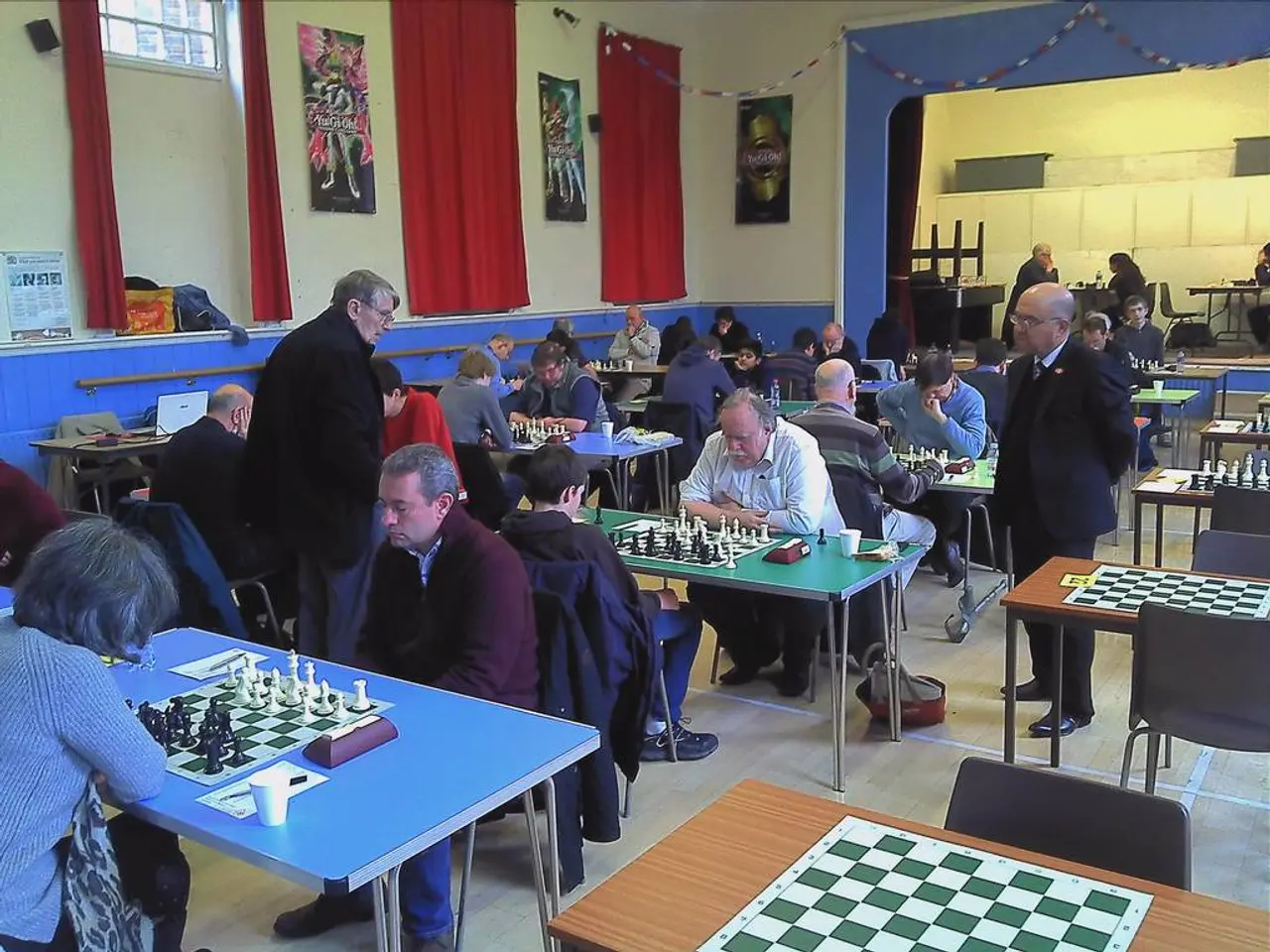"Australia's Gambling Epidemic": Unveiling How Australians Developed a Compulsive Reliance on Bookmakers and Annually Lose Approximately $20 Billion
New South Wales, the historical hub of Australia's European settlement, is teeming with casinos and slot machines. This coastal state boasts around 90,000 slot machines, one for every 88 people, making it the second-highest in the world, just shy of Las Vegas's 120,000 machines [1]. Yet, the state's premier, Chris Minns, recent promise to curb the number of pokies (as slot machines are affectionately called in Australia) has turned out to be a farce, with the registration of 550 additional machines post-election [2].
The addictive allure of pokies and the windfall for gambling operators remain unabated, despite various attempts at limiting losses. These efforts include a cap of $322, cashless gaming trials, and a ban on advertising outside venues. However, the harm caused by gambling in Australia, referred to as the "silent epidemic," continues to rise [3]. In the second quarter of 2024, the public service provider Wesley Mission recorded over $1.3 billion in losses on pokies [3].
Christopher Hunt, CEO of GambleAware in western Sydney, expressed his concerns about the escalating addiction. He warned of the increased vulnerability of gamblers amid rising costs of living, stating, "With the rise in interest rates, rent, and grocery bills, people who already gamble are increasingly turning to it to try and make up for their losses. But it's clear that this only leads to further losses. There are slot machines on every corner in Sydney, making it highly likely that people will get hooked on this addiction" [3].
The new state government, dripping with apathy, has also stalled implementing another crucial promise – the transition to cashless gambling by 2028, which would simplify identifying problematic players. The delay is particularly concerning given the New South Wales Crime Commission's revelation of poker machines being used for money laundering last year [2]. Instead of taking immediate action, officials proposed a 12-month trial of cashless poker machines, stirring suspicions of industry influence [2].
Meanwhile, Australians continue to lose billions to gambling. In 2023, losses skyrocketed to $20.2 billion, the highest per capita in the world [4]. The lack of proper regulation is pervasive, affecting even the popular sports betting market. The federal government's reluctance to adopt the 31st recommendation of Labor Party MP Peta Murphy's report, focusing on reducing online gambling harm, adds to the concerns [4].
Tim Costello, chief advocate of the Alliance for Gambling Reform, voiced his discontent: “Australians lose more to gambling than any other country in the world because we have a severely inadequate regulatory system that allows the gambling industry to operate virtually unchecked, causing harm to individuals, families, and communities. We need to develop a strategy for gambling and entrust a single national regulator to impose a full ban on gambling advertising in media and the internet” [4].
The struggle against gambling-related money laundering is not entirely lost. Regulatory reforms and initiatives aimed at minimizing gambling harm, improving monitoring, and enforcing compliance remain ongoing. For instance, the public consultation for the introduction of mandatory facial recognition technology in NSW hotels and clubs seeks to enhance the identification of excluded patrons, contributing indirectly to financial crime prevention [5].
However, these measures face challenges. Star Entertainment, a leading casino operator, grapples with regulatory obstacles, originally resulting in a license suspension extended until September 2025 [5]. Additionally, ongoing lobbying from the gambling industry and reliance on their financial support for sports and television perpetuate the cycle of unregulated gambling [6].
References:
- Gambling expenditure: number of casinos and licenced gaming establishments, 2011-2019, (Australian Bureau of Statistics, 2021) [Online]. Available:https://www.abs.gov.au/ausstats/[email protected]/mf/5606.0
- Bunney, K., & Markey, A. (2023, March 24). Poker machines approved for extra venues a month after state election. Retrieved April 20, 2023, from https://www.abc.net.au/news/2023-03-24/poker-machines-approved-for-extra-venues-a-month-after-state/101725984?nw=0
- Corcoran, G. (2023, April 20). NSW pokies lose $1.3bn amid calls for gaming reform. Retrieved April 20, 2023, from https://www.smh.com.au/politics/nsw/nsw-pokies-lose-13bn-amid-calls-for-gaming-reform-20230420-p5cp6n.html
- "Australia has world's highest gambling losses per head," BBC News, (BBC, 2023, April 18). [Online]. Available: https://www.bbc.com/news/world-australia-65066443
- Farrell, S., & Anderson, M. (2023, March 30). New laws needed to stamp out gambling ads, says peak gambling advisory body. Retrieved April 20, 2023, from https://www.smh.com.au/politics/nsw/new-laws-needed-to-stamp-out-gambling-ads-says-peak-gambling-advisory-body-20230330-p5cr6b.html
- "Sportsbet and Racing Extend Media Rights Deals with Seven West Media," SportBusiness.com, (SportBusiness Group, 2022, October 26). [Online]. Available: https://www.sportbusiness.com/news/sportsbet-racing-seven-west-media-media-rights/
- Despite the escalating problem of gambling addiction and money laundering concerns in New South Wales, the new state government has postponed the implementation of cashless gambling, originally slated for 2028.
- The delay in transitioning to cashless gambling, combined with the growing number of casinos and casinos games like poker, sports betting, and slot machines, likely increases the likelihood of problematic gambling in the region.
- In light of industry lobbying and financial support for sports and television, it seems the regulatory environment for gambling in New South Wales may remain inadequate, potentially exacerbating the "silent epidemic" of gambling harm.
- While initiatives such as mandatory facial recognition technology in hotels and clubs aim to address money laundering and identify excluded patrons, these measures face challenges, such as regulatory obstacles in the casino industry.
- To combat the issue of gambling-related money laundering, Tim Costello, the chief advocate of the Alliance for Gambling Reform, proposes a national regulatory system to include a full ban on gambling advertising in media and the internet, suggesting a comprehensive guideline for gambling reform and prevention.




